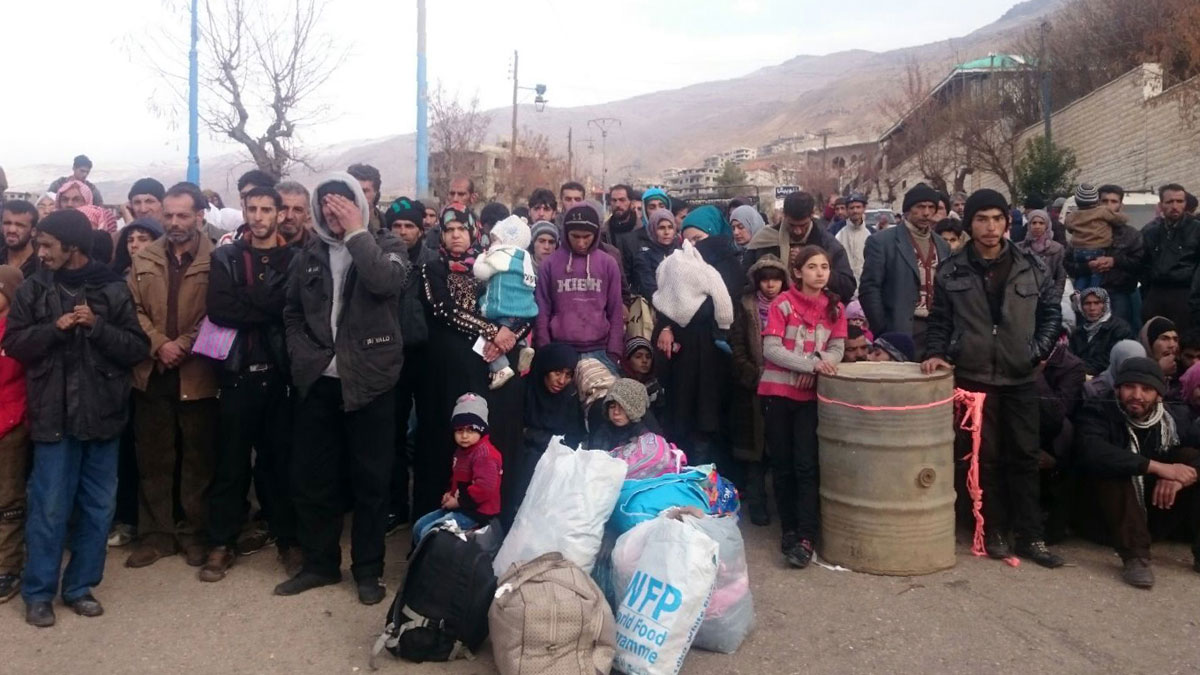UN calls for mass evacuation from Syrian town of Madaya
Hospital patients at risk of starving to death, warns humanitarian chief

A free daily email with the biggest news stories of the day – and the best features from TheWeek.com
You are now subscribed
Your newsletter sign-up was successful
Hundreds of severely malnourished people in the Syrian town of Madaya need to be urgently evacuated for medical treatment, a United Nations diplomat has warned
Aid chief Stephen O'Brien said around 400 starving people needed to be rescued from a hospital in the besieged town "or they are in grave peril of losing their lives", The Guardian reports.
His warning came after the first aid delivery in months was allowed into Madaya, which has been blockaded by forces loyal to the government since July last year.
The Week
Escape your echo chamber. Get the facts behind the news, plus analysis from multiple perspectives.

Sign up for The Week's Free Newsletters
From our morning news briefing to a weekly Good News Newsletter, get the best of The Week delivered directly to your inbox.
From our morning news briefing to a weekly Good News Newsletter, get the best of The Week delivered directly to your inbox.
Images of emaciated children and harrowing accounts have emerged from the small town near Damascus, with residents reportedly forced to eat pets and leaves to survive.
"The first impression is really heart-breaking," Red Cross spokesperson Pawel Krzysiek said yesterday. "Some of [the people] are smiling and waving, but many just simply too weak."
Mousa al-Maleh, the head of the local committee in Madaya, told Al Jazeera that the aid relief would not last long.
"The amount of items that have arrived on these trucks are too little," he said. "I call on the international community to help end this siege and help the people of Madaya."
A free daily email with the biggest news stories of the day – and the best features from TheWeek.com
The delivery coincided with an emergency UN Security Council meeting to discuss the crisis.
US ambassador Samantha Power condemned the "grotesque starve-or-surrender tactics the Syrian regime is using against its own people", while New Zealand diplomat Gerard van Bohemen described it as "one of the most appalling characteristics" of the conflict.
Starving Syrians 'eating leaves and pets' to survive in Madaya
7 January
Residents in a Syrian town close to Damascus are reportedly being forced to eat leaves and pets to survive.
Up to 30,000 people have been trapped in the mountain town of Madaya, which lies a few dozen miles from the capital, since July, under a tight siege by pro-government forces, reports The Guardian.
President Bashar al-Assad's forces have imposed restrictions on the town and its neighbouring city Zabadani, which was once a stronghold of the opposition. Residents say they are being punished for the suffering of two villages, Fua and Kefraya, in the Idlib province hundreds of miles away, which were captured by rebels last year.
"People are dying in slow motion," said Louay, a social worker from Madaya. "We had some flowers growing in pots at home. Yesterday, we picked the petals and ate them, but they were bitter, awful."
With a kilogram of rice costing as much as £170 on the black market, people are now buying it by the gram.
"I swear by God - and you might not believe me because it sounds fantastical - I tried to buy some food today but a kilo of rice is 100,000 [Syrian] pounds (£311)," said Louay. "A kilo of rice, bulgur, lentil, sugar – 100,000, 100,000, 100,000. That is if you can find it."
He added: "I've personally seen people slaughtering cats to eat them and even the trees have been stripped of leaves now."
Activists have shared pictures of emaciated elderly men and starving children. Some youngsters are risking their lives trying to collect plants in minefields around the town's outskirts and several have lost limbs, residents said.
"Whether you are a man, woman, child, whether you're 70 or 20 years old, you will have lost about 15kg [33lbs] of your weight," said Ebrahem Abbass, a defector who had served as a sergeant in the Syrian army. "You don't see a child whose eyes aren't sunken and staring from hunger."